Charles Pakana (Victorian Aboriginal News)
Today on the program, we’re joined by historian Peter Bakker. Peter is widely recognised right across Australia as an authority when it comes to Aboriginal service in the field of conflict. Peter is unashamedly a white Australian, but has devoted decades of time and research into this very underrated and under researched area of our shared history. Peter, welcome to the VAN Talks program.
Peter Bakker
Thank you very much
Charles
Peter, let’s start off first of all with the myth, the story, whatever you want to call it, of the 50 Black Trackers that were supposedly left behind in the Boer War because of the White Australia Policy. Now, from my understanding and having read a number of your pieces of research, apparently Lord Horatio Kitchener, who was leading the allied troops or the English troops in South Africa, put a call out to Prime Minister Barton, our Prime Minister at the time, calling for 50 trackers. No specification of colour or creed, but 50 trackers. I believe that the Bendigo Independent newspaper in 1902, without any substantive information, said that, first of all, that Kitchener asked Canada for 50 Black Trackers. And then the next day, they reported they’d asked Prime Minister Barton for 50 Black Trackers. Shed some light on the reality of this.
Peter
Well, thanks, Charles. Yes, there are some facts that have been distorted, and they’re not just distorted in recent times. They were misunderstood at that time. In late 1901, with the guerrilla phase of the war in South Africa, we do have the commander in chief of the British forces, Lord Kitchener, requesting Canada for some trekkers or trackers.
Charles
T R E. Right.
Peter
And also for the next day, a request was made to our Prime Minister Barton, at the time first Prime Minister, to send some bush trackers. He wasn’t quite sure what was meant, but it was reported in newspapers that this request had been made for trackers. And, of course, Bushmen and trackers mean two different things to Australians. Bushmen, of course, the laconic image of the stereotypical bronze Aussie. Yeah, that’s right. And it was all tied in with that nationalism that was fermented with the rise of first liberation. And then the word tracker is associated with Aboriginals. And, you know, they were the trackers. Yes, there were white trackers, too, but the real trackers, the iconic Aboriginal who searched for people lost in the bush, who helped find water and who helped in the arrest of bushrangers. So the term trackers meant the iconic Aboriginal tracker that was synonymous, particularly in New South Wales and Queensland, for their incredible legendary skills of finding, by the smallest piece of evidence in the bush, finding lost people, bush rangers, finding food sources, etcetera.
Charles
So when was it clarified, because apparently Barton wrote back to Kitchener asking for clarification.
Peter
That is correct. He wrote back asking for clarification and he was told people who were specifically suitable for surviving in the harsh conditions of the South African Felt.
Charles
Kitchener wanted 50 clancies of the overflow.
Peter
Something like that, yes.
Charles
Right. Okay.
Peter
Because it was a guerrilla phase of the war and the Boers were being very elusive and very successful in that campaign.
Charles
Because they’d had a lot of success, I think, during a week or two against the British. And hence, I think the British at that point realised that they needed to change their tactics from just that red coat formation marching forward.
Peter
Could I just add on that the British primarily depended on infantry forces. And when the reference is made to bushmen, we’re talking about men who were able to travel quickly with light horse, if you like. And in fact, it was as our involvement of contingents, Australian contingents, in the Boer War, that we developed the light horse.
Charles
Did Australia actually send over those trackers? Not the Aboriginal trackers, but did they meet that request from Kitchener?
Peter
At no stage, both contemporary records and in British or Australian military records and in government records, is there any reference to Aboriginals being sent as a group of trackers.
Charles
So did it really all emerge from that Bendigo Independent, unsubstantiated article?
Peter
Now, there’s a number of other contemporary issues that occurred, of course, when the war is going on, there are various people writing into the newspaper, making suggestions that we send Aboriginal trackers over. And there was huge debates in the newspaper and obviously down the local pub about the pros and cons of sending aboriginals to fight in a so-called white man’s war. Then we also have a number of prominent people who, or people who thought they were prominent, who made the suggestion that they could round up a group. Bushmen who are trackers, didn’t state Aboriginals, but said Bush trackers, and in the public perception that occurred. And then there were two stories in particular. One is an anecdotal story told by Banjo Paterson, who was a reporter for the Sydney Morning Herald, and another one by a former sub inspector of police, a man by the name of Edward Kennedy, who worked for just one year in 1864 with the Native Police Force in Queensland. And these guys wrote some stories, anecdotal stories, about what an Aboriginal had done in South Africa. And these stories became taken as fact. There’s no factual basis in those stories whatsoever. And there’s no evidence, like specific naming of people or places or of troops.
Charles
Let’s talk now about the Euryalus the ship that apparently they were meant to be sent over on. And it’s really interesting because I read in the article that you wrote that there were horses on there. There were no records. And this is the telling thing. There were no records of white officers. Now, if there had been a band of 50 Aboriginal trackers there, they would have been under the command of a white officer, and record keeping at that stage would definitely have reflected that fact. So how did the Euryalus come into this story?
Peter
Right. Well, there was a man called Willis who was making a good trade of Australian horses to be used by the troops in South Africa. So he had a good deal with the British Government and he when the talk about in sort of 1901, 1900, early 1902 came about, you know, the need for Bushmen, he offered to send a group of trackers, but it became perceived as Aboriginals. He didn’t actually in anywhere say that they were Aboriginals, but once again it was said that they were trackers. And this ship traveled down the east coast of Australia and they were supposed to be picked up in all places of Melbourne in the Euryalus. I’ve managed to obtain the actual manifests and there are no non white people mentioned in that list. There’s only a few crewmen looking after quite a few horses and. Yeah, so that’s the issue that became, once again, confused. The word trackers is key to it.
Charles
But the other part of the story seems to be in 1907, when the Australian government was prepared to pay for the repatriation of Australians who were stuck in South Africa as a result of the depression there. They commissioned a fellow over there, forgotten the name of him, and he apparently knocked back about half of them because in many cases, of the White Australia Policy. So there were some of the expat Australians who wanted to come back home, but they were married to a black South African person or someone of colour, which, of course, the White Australia Policy didn’t really want. Were there Aboriginal people in there? Because that seems to be the point at which we’re saying, well, they weren’t allowed to come back to Australia because of the White Australia Policy.
Peter
You made an excellent point there. Yes. There was this man called George Valder, and he was the New South Wales Government’s commercial agent in Cape Colony. You’ve got to remember that the war largely came about because of the finding of gold in the Boer states. And so after the Boer War finished in May 1902, lots of Australians decided to go over there with the gold strikes, and a number of Australian troops decided to stay behind and find employment there or go find their gold themselves. A lot of people don’t realise that Aboriginals were actually migrants back in those days. They went to New Zealand, they went to Canada, to Europe. Only a few, but they did do it and apparently some went to South Africa. So in Valder’s situation, he had all these people when in 1906 1907, the economic situation in South Africa absolutely plummeted and people were desperate for not just employment, but for food. Food supplies were very scarce. And so both original Australians and people who wanted to be out of South Africa, claiming to be Australians, were attempting to get to Australia. So Valda had to cut down, and believe it or not, he actually does record in his report that there are two or three Aboriginals who are seeking to get back to Australia. What do I do?
Charles
And what was the response from the government?
Peter
And the response from the government was very vague, but in essence, it said they can pay their own way.
Charles
Oh, my goodness. But nearly one and a half thousand were actually funded over by the government.
Peter
That’s correct, yes.
Charles
But the First Peoples weren’t.
Peter
Yeah, there were some that were not because there’s so little detail. We don’t know the names of these people. We can’t find the background story to this, but there is the evidence from his writing, amongst other people who are requesting to come to Australia, he mentions two or three Aboriginal people, dark, who appear Aboriginal, claiming they want to return to Australia.
Charles
So what’s the truth, then, of Aboriginal service in the Boer War?
Peter
Well, the truth is actually a good news story.
Charles
That’s what we’d like to hear, Peter.
Peter
Yeah, look, with my research over the last 16-17 years, I’ve focused increasingly on the Boer War because it’s an area that historians haven’t done any real work on and there doesn’t seem to be any real memory of what occurred. But from my research, I found to date that there are eleven Aboriginals from different parts of Australia who enlisted and they got in on their own merit in the various contingents around Australia. And they range from Western Australia, South Australia, Victoria, New South Wales, and believe it or not, not Queensland we haven’t located and identified. And yet the myths, a lot of the myths to do with, you know, Native Trackers being sent. And then there’s Doctor Dale Cohen, an historian from Griffith University in Queensland. Yes, he pretty well popularised the myth of the 50 black trackers through the ABC and through NITV, but when you go to look at the substance of it, it can’t be found. But back to this good story. These eleven men got in on their own merit and they got in ahead of local country bushmen because they were as was requested. When Kitchener responded, he wanted men who could ride and shoot well, as well as be good bushmen. They were the three things. And Barton sort of put that request out for the army to focus on those things.
Charles
So they were serving in mainstream units?
Peter
They certainly were. And the incredible thing is that when I studied and found the first ten, they not only all went there on their own merit, they served as fully fledged troopers.
Charles
Were they brought back, Peter?
Peter
They all returned.
Charles
Right.
Peter
They all returned. And there was no record of any trouble with the White Australia Policy, which was introduced in 1901.
Charles
Right.
Peter
And so that’s a, the whole Black Tracker left behind myth is a black mark on the Australian military, and it’s completely unwarranted. Now, sadly, the 11th, the most recently found Aboriginal to have served is a man from Western Australia. And this man, Walter Parker, he died in South Africa during the Boer War, but not from the bullet. The sad story is that just over 50% of Australians who died in the Boer War died from enteric fever and other sicknesses, particularly enteric, which is typhoid.
Charles
We saw this in World War one as well, didn’t we?
Peter
Exactly. A lot of people don’t realise that the conditions of warfare are horrific.
Charles
So, Peter, what needs to be done to address the wrongs in your mind? First of all, by way of putting this 50 black trackers myth to rest and then promoting the truth about these at least eleven Aboriginal men who fought side by side with the white brothers in arms in the Boer War, what needs to be done?
Peter
Well, it’s very hard to stamp out myths. You go to the Internet and 50 Black Trackers is everywhere.
Charles
But people love the romance of this glory, don’t they? And it’s brought out all the time.
Peter
So what I’ve done in my research, I don’t just do, oh, these men serve. What’s their service number? They went, they came back. What unit did they serve? I do the background story and the background story on these men is fantastic. The story of their lives, their community, the hardships they faced and how they overcame them is absolutely amazing. Part of the research indicates, for instance, that on average, these men who served had longer lifespans than white people at the time. And so how do I get this message across? Well, I think education, being a teacher by training, I believe that this information should be in every Australian child’s textbook. When they study history about Aboriginal involvement. We’ve been talking about it now for 20 years, but very little has been done.
Charles
And where can people find copies of your research?
Peter
Well, they can, for instance, go to eBay and I have some of my booklets available there. There are events held every year in every State, Territory that seeks to remember not just the fallen, but the participation of Aboriginal men and women who have served.
Charles
And we’ll be speaking later in this program with Same Halim from the Victorian Aboriginal Remembrance Committee on that very issue. Peter, unfortunately, we have run out of time. We will provide links on our website to a lot of the research from Peter and various other links as well. Peter, we will be chatting again over the next few months because there’s more to the story or more to the many stories than meets the eye. I want to thank you indeed very much for your time.
Peter
Thank you.


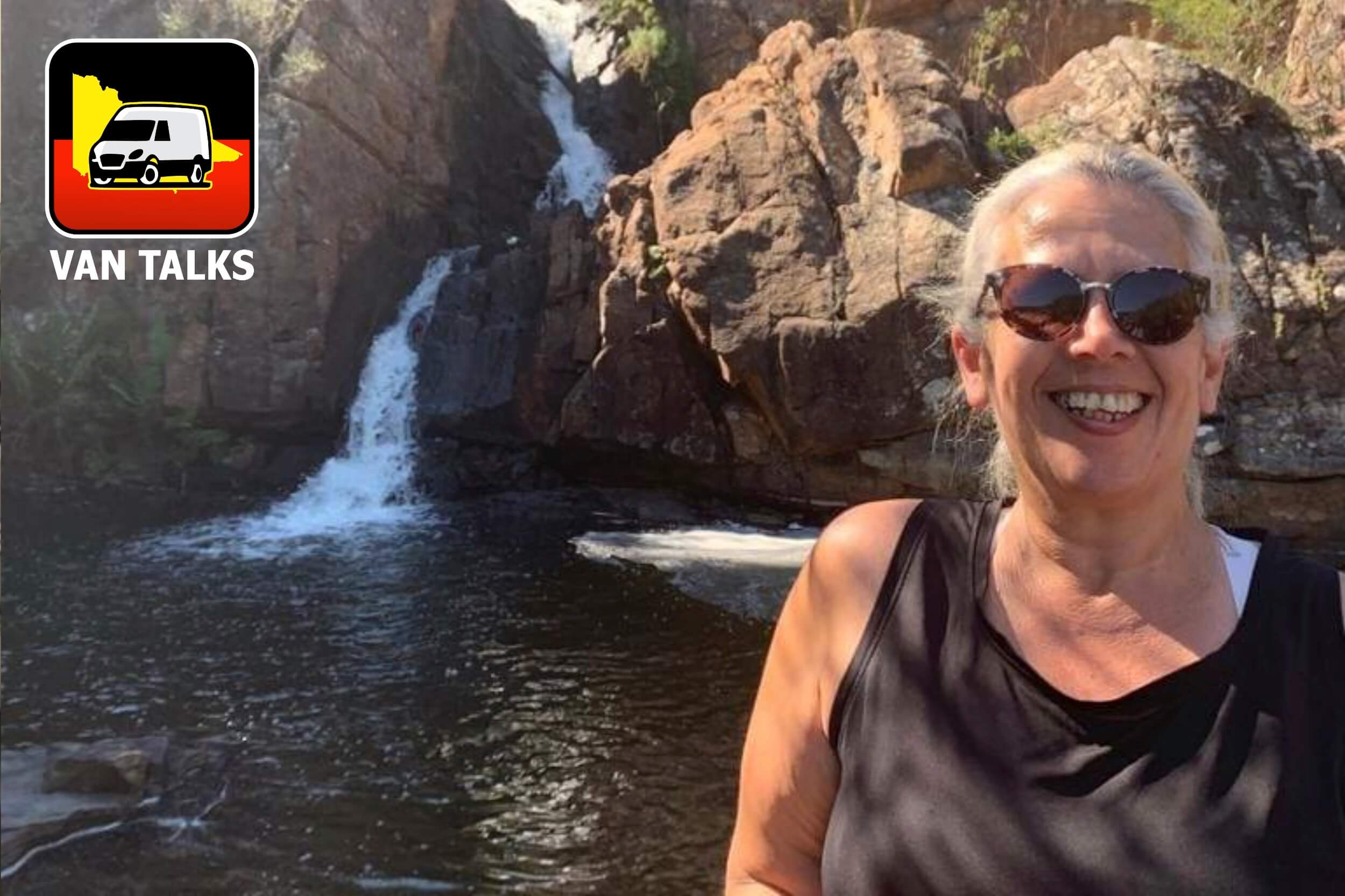
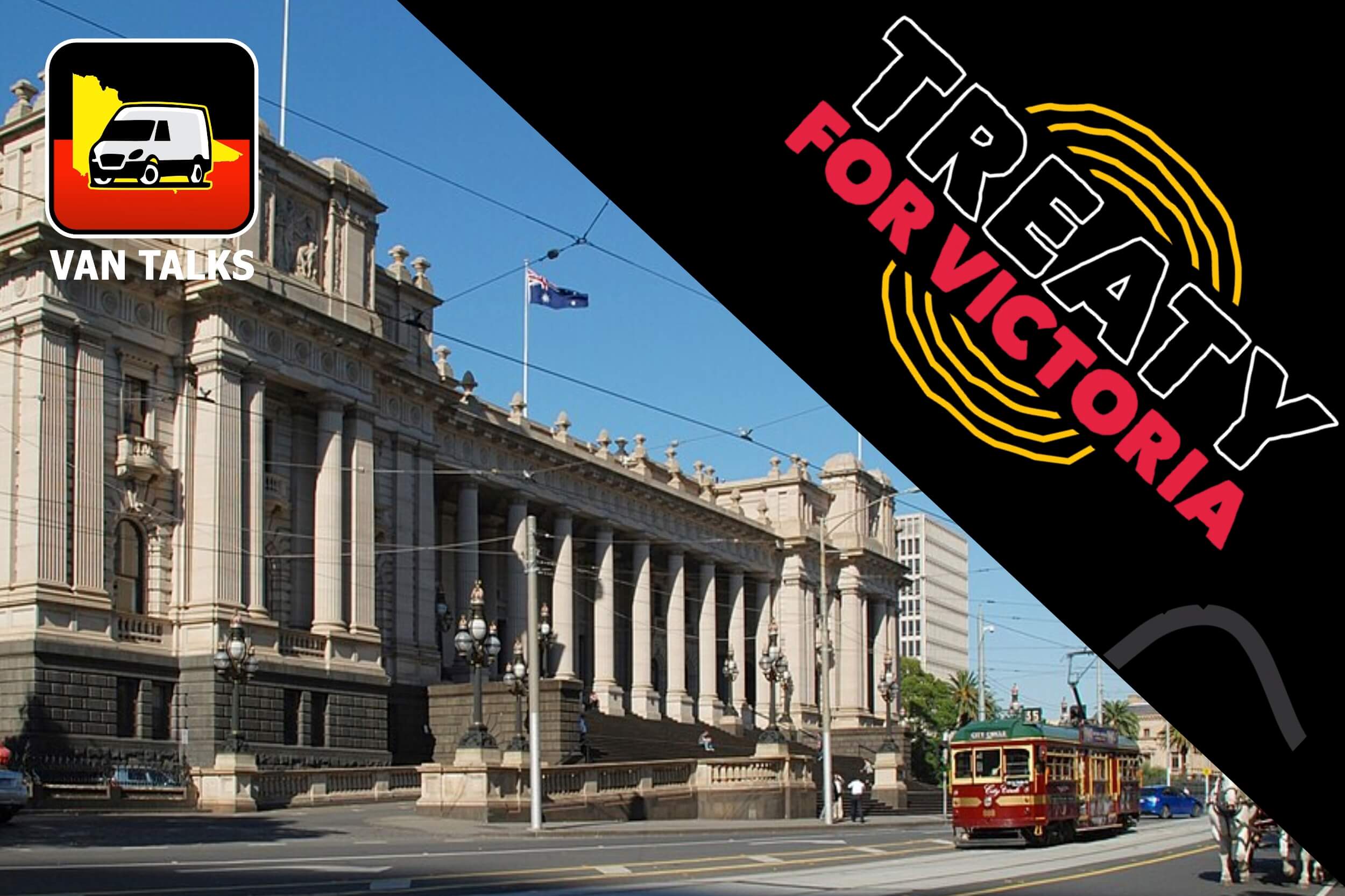
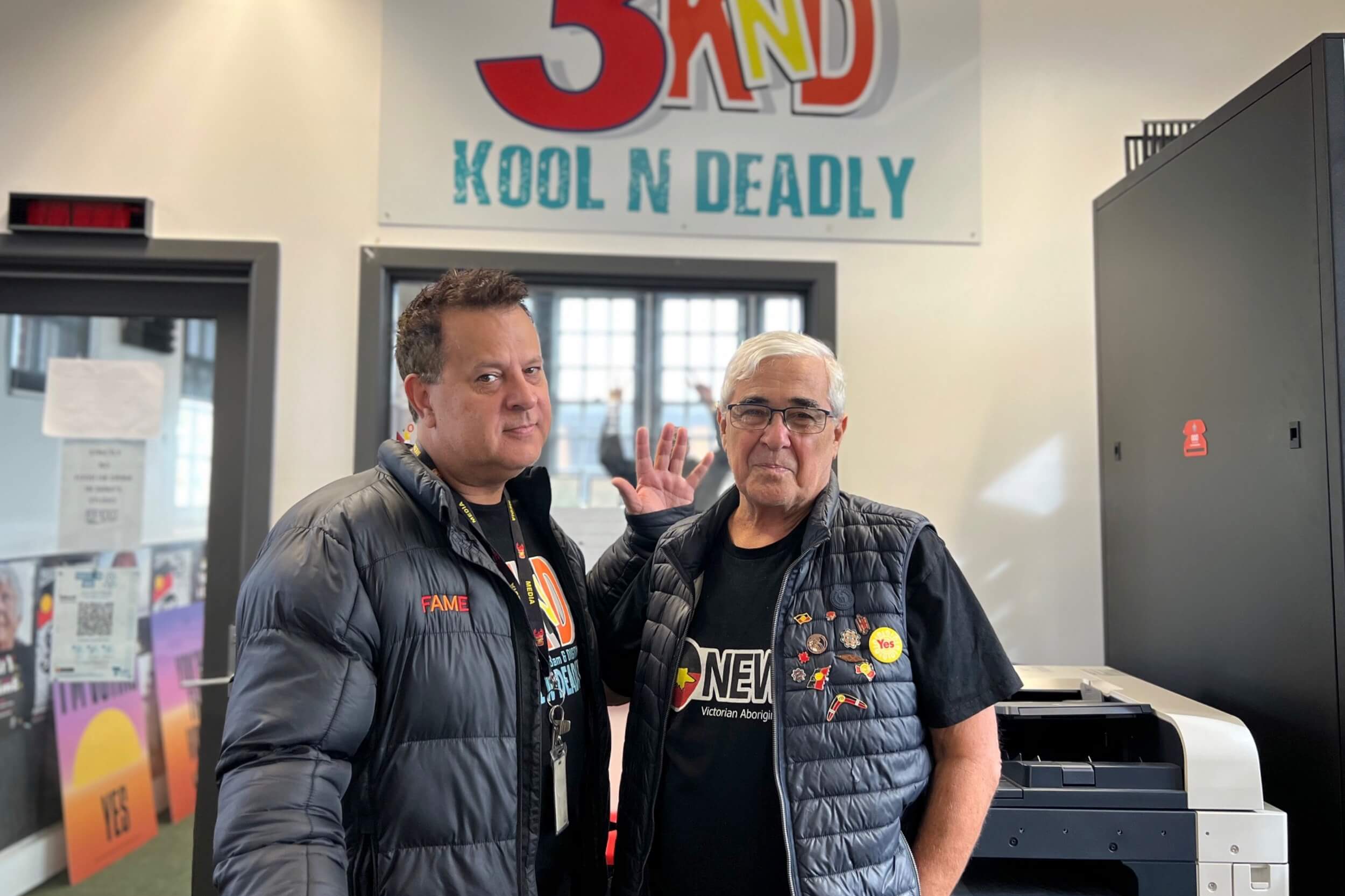
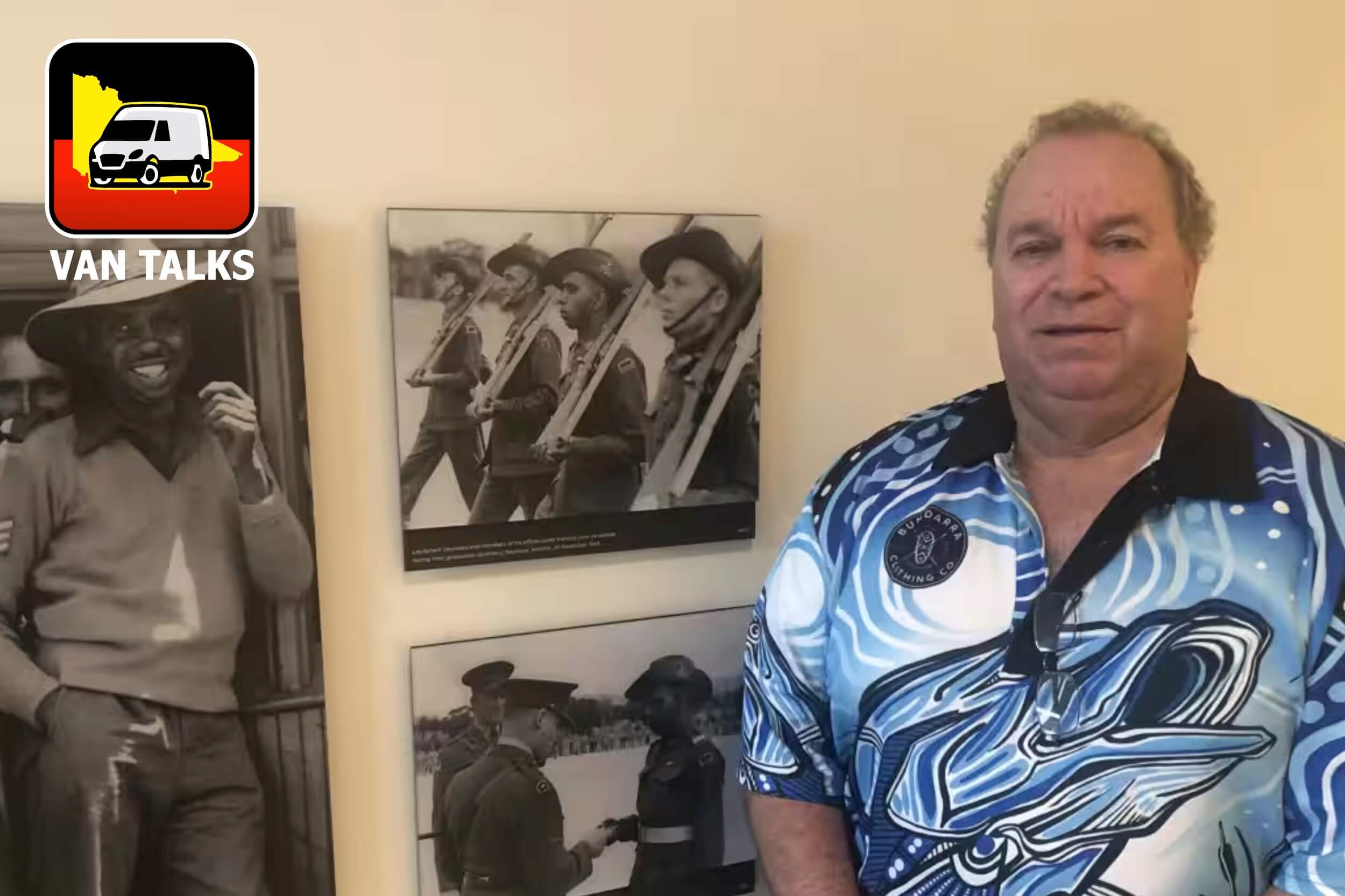
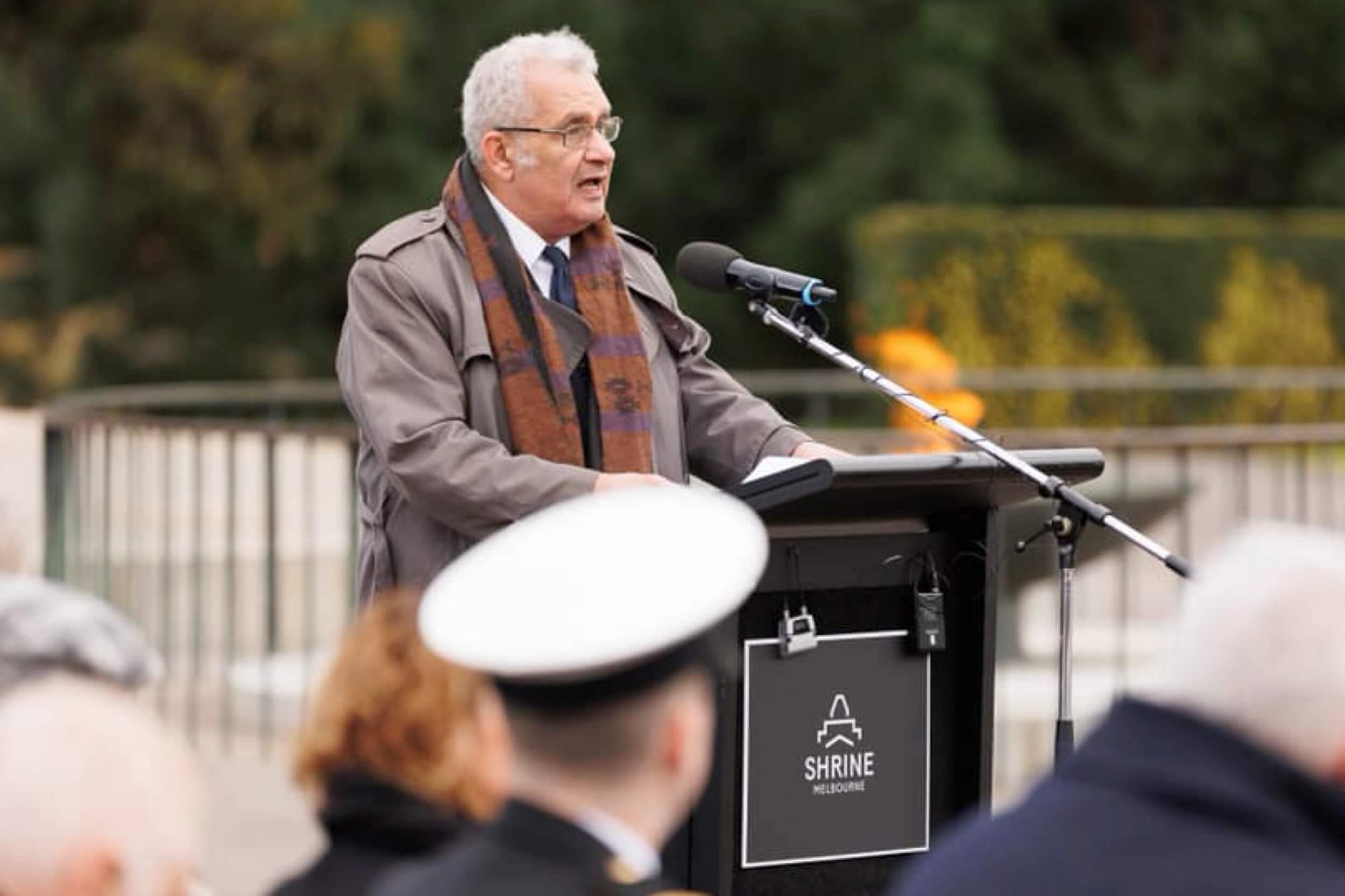

0 Comments